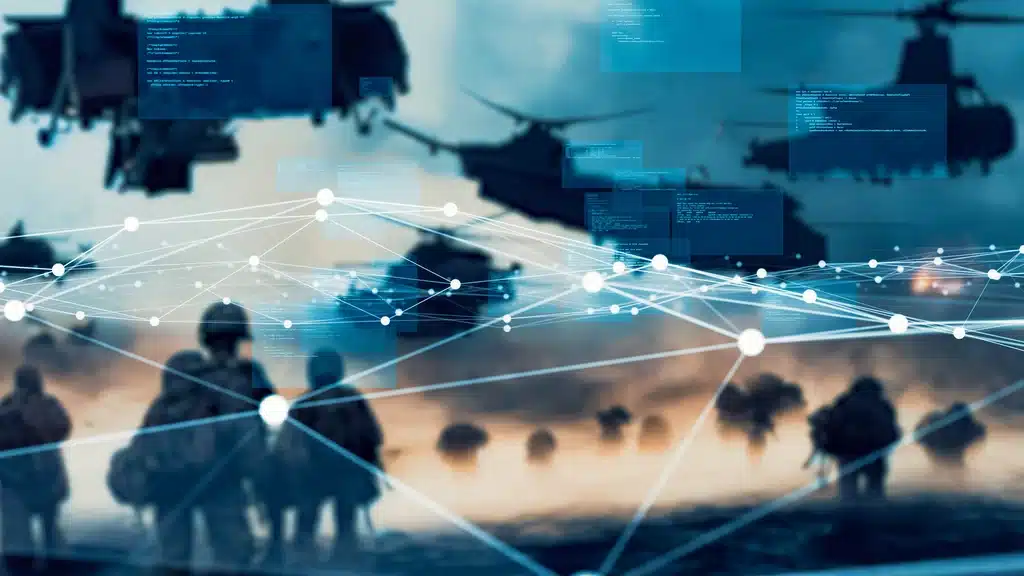Home » Newsroom Posts » Protecting Mission-Critical Communications in Military & High-Security Environments

September 18, 2025 | By Shirmattie Seenarine
TL;DR:
Secure communication is mission-critical in military bases and high-security environments.
Key takeaways:
In high security environments and military applications, effective communication is often the backbone of operational success.
Communication must be fast, reliable, and perhaps most important of all, secure. Important and sensitive information must be protected to maintain mission readiness.
This is where traditional networks often fall short and closed networks, private 5G, and specialized unified communication platforms, by contrast, stand out as essential communication solutions.
In the military, secure communication is essential for protecting sensitive information and ensuring mission readiness. That need is reflected in NIST’s definition of secure communication protocols, which highlights confidentiality, source authentication, and integrity protection as the pillars of secure communication.
This isn’t just theory. The U.S. Army stresses that communications security (“COMSEC for short”) is a mission-critical requirement, noting that lapses in communication security can cost lives and compromise entire operations. In 2007 for instance radio communication was intercepted by insurgent groups in Basra, Iraq, leading to British troops being ambushed.
Closed networks isolate devices from the public internet, adding an important layer of protection that shields systems.
In a military context, closed networks secure sensitive broadcast channels, which means only authorized personnel can access them. Closed networks also prevent intruders from intercepting these channels.
Unless you procure the right vendor, the protection of closed networks against the public internet creates operational difficulties because most consumer and enterprise applications rely on Apple or Google servers for notification services, which become unavailable in these restricted systems. Users may experience delayed or no incoming call alerts, instant messages, or audio on push-to-talk channels when they use closed networks.
A Unified Communications solution deploying a closed network requires absolute reliability because users need uninterrupted service. The application needs to maintain its operational state when users disconnect their devices from public internet access.
The challenge? Several vendors advertise closed network support through inadequate workarounds in their products. The application maintains continuous operation through a method that keeps it running in the background at all times. The approach proves dangerous because it fails to provide sustainable operation:
The evaluation of UC solutions requires users to identify actual closed-network functionality from vendors who might be using unreliable methods. The following test can be performed on a mobile device.
1. Ensure your mobile device has no Internet connectivity but only access to your closed network.
2. Open your organization’s phone app on a mobile device.
3. Use the swipe gesture to shut down the application completely, which mimics the operating system’s background termination process.
3. Use another phone to initiate a call to the device.
The result: The app functions correctly for closed networks and background operation, if your phone rings when the app is closed. If the phone does not ring in your restricted network, then it is likely that your vendor relies on workarounds.
The absence of communication during critical operations can create dangerous situations in sectors like healthcare, defense, and emergency services that rely on regular communication. A UC solution that operates in closed networks requires complete independence from public internet access and Apple and Google support to stay active.
The Deltapath UC platform design eliminates communication breakdowns by maintaining operational channels throughout closed network environments.
Deltapath developers designed their services and products, such as Deltapath Mobile, to operate successfully in a closed environment without requiring workarounds. Accordingly, Deltapath Mobile maintains uninterrupted connectivity in restricted environments and supports background termination, operating independently to support all modes of communication, including missed calls, messages, and push-to-talk transmissions.
For military and high-security settings, private 5G networks offer more than just high speeds. Their ultra-low latency and dedicated bandwidth support real-time applications that public networks can’t handle.
For example, a private 5G network can stream encrypted video from drones, perimeter sensors, or body cameras, giving commanders an instant, clear view of the battlefield or base. This live feed allows for immediate, secure communication and decision-making, without the risk of interception.
Because the network is private, it avoids congestion and potential disruption of public infrastructure. This creates a secure, uninterrupted backbone for everything from coordinating autonomous vehicles and monitoring secure facilities to relaying critical intelligence.
Ultimately, this allows commanders to react to threats in seconds instead of minutes, which can be the deciding factor between mission success and failure.
High-security and military environments demand secure networks and airtight COMSEC. Closed networks, unified communications, 5G private networks, and unified communications for military bases minimize cyber risk, elevate performance and coverage, and maintain operational flow.
When secure communication is non-negotiable, rely on Deltapath UC for an interoperable and resilient communications backbone that keeps mission-critical collaboration seamless, reliable, and, of course, secure and operational.